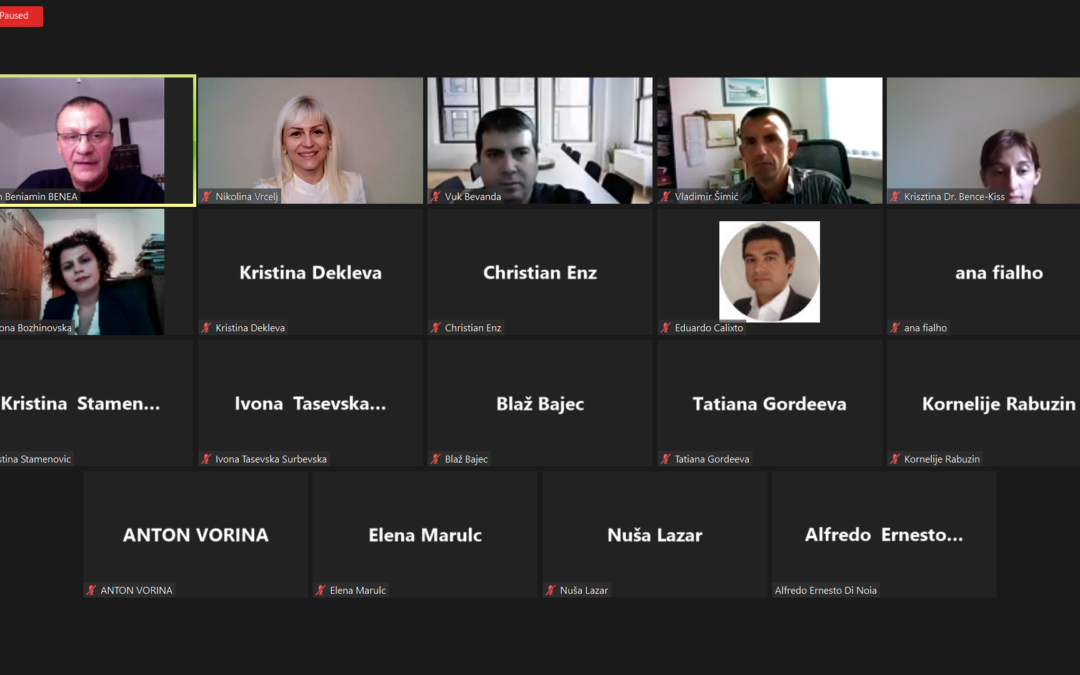Yulia Anatolevna Matafonova – Trans-Baikal State University, Chita, Russia
Tatyana Nikolayevna Gordeeva – Trans-Baikal State University, Chita, Russia
DOI: https://doi.org/10.31410/ITEMA.2021.191
5th International Scientific Conference on Recent Advances in Information Technology, Tourism, Economics, Management and Agriculture – ITEMA 2021, Online/virtual, October 21, 2021, CONFERENCE PROCEEDINGS published by the Association of Economists and Managers of the Balkans, Belgrade; Printed by: SKRIPTA International, Belgrade, ISBN 978-86-80194-51-6, ISSN 2683-5991, DOI: https://doi.org/10.31410/ITEMA.2021
Abstract
The article deals with the impact of the COVID-19 pandemic on indicators of migration outflow from the Trans-Baikal Territory and interpretation of the results obtained based on the authors’ theoretical provisions concerning the sustainability of a regional political system (a constituent entity of a federal state). The analysis of theoretical approaches to sustainability of the political system allowed us to formulate the essence of the sustainability towards the regional political system operating within the framework of the federal organization of political and territorial space of the state. The analysis of migration processes and comparison of the results of the similar periods (before the COVID-19 pandemic and during the pandemic) revealed a general trend of non-decreasing migration outflow of the population from the Trans-Baikal Territory. The restrictive conditions of the COVID-19 pandemic had little impact on the quantitative indicators of migration in the Trans-Baikal Territory, without reducing negative migration balance. The obtained results allowed us to conclude that the regional political system is unstable – it is unable to create comfortable and attractive living conditions for the regional community.
Keywords
COVID-19; Migration; Negative migration balance; Regional political system; Sustainability of a regional political system
References
Ake, C. (2011). Modernization and Political Instability: A Theoretical Exploration. World Politics, 26 (04), 576–591.
https://doi.org/10.2307/2010102
Bilyuga, S. E. (2018). Political stability: basic approaches to the analysis of the stability of the political system. Age of globalization, 2 (26), 46–56. https://doi.org/10.30884/vglob/2018.02.04
Deutsch, К. (1974). Politics and Government: How People Decide Their Fate. Atlanta.
Diskin, I. E & Fedorov, V. V. (2010). Exercising responsive modern Russian political system. Monitoring of public opinion: the economic and social changes, 6 (100), 4–11.
Dowding, K. & Kimber, R. (2006). Political stability and the science of comparative politics. European Journal of Political Research, 15 (1), 103–122.
https://doi.org/10.1111/j.1475-6765.1987.tb00866.x
Duff, E. A. & McCamant, J. F. (1968). Measuring Social and Political Requirements for System Stability in Latin America. American Political Science Review, 62 (4), 1125–1143.
Easton, D. (1979). A Framework for Political Analysis. Chicago: University of Chicago Press.
Ersson, S. & Lane, J. E. (1983). Political Stability in European Democracies. European Journal of Political Research, 11 (3), 245–264.
Federal State Statistics Service of the Russian Federation, https://rosstat.gov.ru/bgd/regl/ b20_107/Main.htm
Grishin, O. E. (2015). Sustainability of the political system: notion, approaches, regulators. Modern Problems of Science and Education, 1 (1), 1924.
Hurwitz, L. (1973). Contemporary Approaches to Political Stability. Comparative Politics, 5 (3), 449–463.
King, R. & Pratsinakis, M. (2020). Special Issue Introduction: Exploring the Lived Experiences of Intra‐EU Mobility in an Era of Complex Economic and Political Change. International Migration, 58 (1), 5–14. https://doi.org/10.1111/imig.12682
Kochetkov, A.P. (2017). On the stability of the political system of modern Russia. The Caspian Region: Politics, Economics, Culture, 3 (52), 65–71.
Levashov, V. K. (2011). Socio-political stability of society. Bulletin of the Russian Academy of Sciences, 81 (12), 1059–1064.
Lukashin, I.A. (2006). Migration and its features in modern conditions (on the materials of the Chita region). Socio-stratification differentiation of Russian society. Materials international Scientific Conference, 2, 69–74.
Matafonova, Y.A. (2016). Systematic Interpretation of the Factors of Federal Sustainability and Socio-Political Security of a Constituent State of a Federation. American Journal of Applied Sciences, 13 (2), 222 – 229. https://doi.org/10.3844/ajassp.2016.222.229
Regional Office of the Federal State Statistics Service for the Trans-Baikal Territory,
https://chita.gks.ru/folder/47256, http://www.chita.gks.ru:8080/bgd_site/
Salin, P. B. & Yurga, V. A. (2012). Formal Models of the Games Theory in Politology and Their Applications to Expert Economic Models. Humanities and Social Sciences. Bulletin of the Financial University, 4 (8), 32–42.
Sheehan, T. (2015). Guiding principles for stabilization and reconstruction. US: Institute for Peace and the U.S. Army Peacekeeping and Stability Operations Institute.
Triandafyllidou, A. (2020). Commentary: Spaces of Solidarity and Spaces of Exception at the times of COVID‐19. International Migration, 58 (3), 261–263. https://doi.org/10.1111/ imig.12719.
Veizis, A. (2020). Commentary: “Leave No One Behind” and Access to Protection in the Greek Islands in the COVID‐19 Era. International Migration, 58 (3), 264–266. https://doi. org/10.1111/imig.12721
Yakovets, Yu. V. (1999). Cycles. Crises. Forecasts. Moscow: Nauka.





